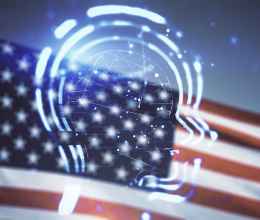
NEWARK – Today the American Civil Liberties Union of New Jersey and the ACLU filed an amicus brief in support of Nijeer Parks – who was wrongfully arrested in 2019 following police reliance on a false match by face recognition technology. The ACLU’s brief, which was filed in the U.S. District Court for the District of New Jersey, argues that Mr. Parks’s case should be allowed to continue to trial to vindicate his civil rights. District Court for the District of New Jersey.
While face recognition technology is at the center of several wrongful arrest cases being litigated across the country, Parks v. McCormac could be the first in which a judge addresses the scope of police liability for its misuse based on a record developed through discovery.
“Mr. Parks is an innocent New Jerseyan whose rights were disregarded when police neglected any proper procedure and misrepresented the accuracy of problematic face recognition tools,” said Dillon Reisman, staff attorney for the ACLU-NJ. “We filed this brief to ensure the Court hears how law enforcement use of face recognition is fundamentally unreliable, and how its limitations led to the false arrest and imprisonment of Nijeer Parks, an innocent Black man, for a crime he did not commit.”
In January 2019, police in Woodbridge, New Jersey responded to an alleged shoplifting incident in a hotel lobby. When two officers confronted the suspect, he provided a fake driver license before fleeing in a rental car. Woodbridge Police sent a blurry and shadowed image of the photo on the driver license to an out-of-state investigator, who ran the picture through a face recognition system and informed a Woodbridge officer that Mr. Parks was a “possible hit.” Without conducting any reliable follow-up investigation, the police applied for an arrest warrant, but concealed from the magistrate judge critical facts about the unreliability of the face recognition search and other defects in the investigation. Woodbridge police arrested Mr. Parks and kept him in jail for ten days, even though they could have confirmed he was nowhere near Woodbridge at the time of the incident.
As evidence has repeatedly shown, face recognition technology is dangerously unreliable and subjects Black and brown people to higher rates of misidentification, particularly when used in law enforcement settings. Nearly every known case of a wrongful arrest due to police reliance on incorrect face recognition results has involved arrest of a Black person.
“The court should take this important opportunity to put police on clear notice that misuse of this technology poses a hazard to members of our communities, and that police can be held accountable for violating people’s rights,” said Nathan Freed Wessler, deputy director of the ACLU Speech, Privacy, and Technology Project.
The technology jeopardizes a person’s ability to live a safe, private life free of constant government intrusion and scrutiny, and discourages people from comfortably exercising their constitutional rights to speak freely, associate freely, or enjoy their neighborhoods freely. This is why the ACLU-NJ has called for a total ban on the use of face recognition technology by law enforcement in the state.


